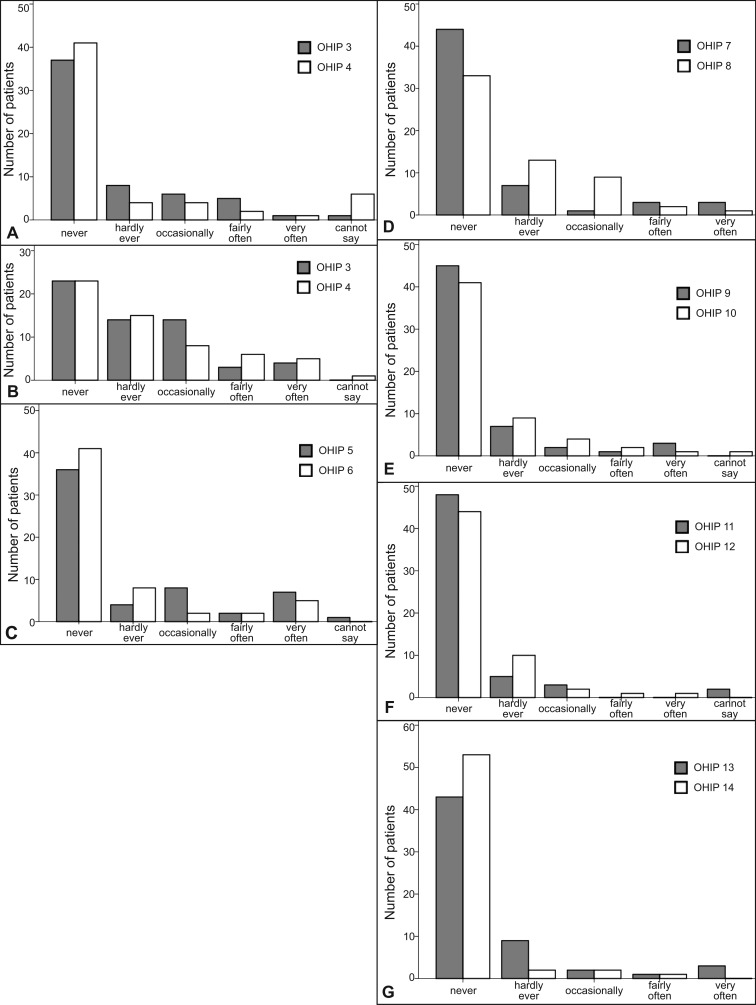Figure 1.
Patients' perceptions of the social impact of oral disorders on their well-being according to the questionnaire (OHIP-14). The five categories of response for each item are never (= 0), hardly ever (= 1), occasionally (= 2), fairly often (= 3) and very often (= 4).
A = Functional limitation ('trouble pronouncing words because of problems with teeth, mouth or dentures' (OHIP 1) and 'sense of taste has worsened because of problems with teeth, mouth or dentures' (OHIP 2)).
B = Physical pain ('painful aching in the mouth' (OHIP 3) and 'uncomfortable to eat any foods because of problems with teeth, mouth or dentures' (OHIP 4)).
C = Psychological discomfort ('have been self-conscious because of teeth, mouth or dentures' (OHIP 5) and 'have felt tense because of problems with teeth, mouth or dentures' (OHIP 6)).
D = Physical disability ('diet has been unsatisfactory because of problems with teeth, mouth or dentures' (OHIP 7) and 'have had to interrupt meals because of problems with teeth, mouth or dentures' (OHIP 8)).
E = Psychological disability ('difficult to relax because of problems with teeth, mouth or dentures' (OHIP 9) and 'have been a bit embarrassed because of problems with teeth, mouth or dentures' (OHIP 10)).
F = Social disability ('have been a bit irritable with other people because of problems with teeth, mouth or dentures' (OHIP 11) and 'have had difficulty doing usual jobs because of problems with teeth, mouth or dentures' (OHIP 12)).
G = Handicap ('have felt that life in general is less satisfying because of problems with teeth, mouth or dentures' (OHIP 13) and 'have been totally unable to function because of problems with teeth, mouth or dentures' (OHIP 14)).

